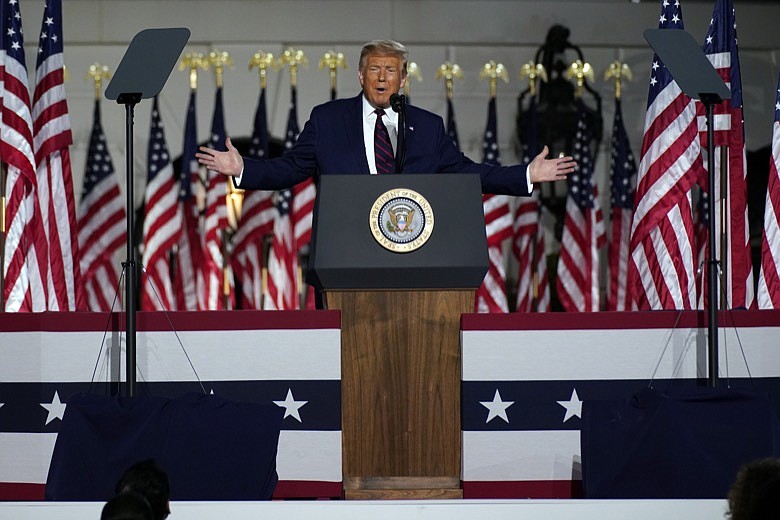The last firework over the National Mall has exploded, and the last partisan has been paraded in front of cameras to make a virtual pitch in this most unusual of election seasons.
The national political conventions are over, and Americans now have just over two months to make up their minds about their choice of president of the United States for the next four years.
We would like to believe voters will take a long look at the records of both men running on major party platforms, will reflect on how their plans might affect the country over the next four years, and will determine how they and their family are likely to fare in the next four years.
Some will do just that. Others will rely on the campaign ad that turns their head or be swayed by false information on social media or listen to what some celebrity thinks or fall back to how their demographic or occupational group tells them they should vote.
Neither President Donald Trump nor former Vice President Joe Biden will be able to fairly use Ronald Reagan's famous question that he posed to voters in his 1976 debate with then-President Jimmy Carter. "Ask yourself," Reagan said, "are you better off now than you were four years ago? Is it easier for you to go and buy things in the stores than it was four years ago? Is there more or less unemployment in the country than there was four years ago? Is America as respected throughout the world as it was?"
Few people we know can say they are better off than they were four years ago, or one year ago, because of the global coronavirus pandemic. It has affected all of us in some way, and it is not hyperbole to say it has turned the world upside down.
Trump is in no way responsible for the virus - sometimes even Democrats will acknowledge that - but his handling of it is fair game. He tells us his early travel bans from China and Europe were crucial in savings lives. He says his direction that personal protective equipment and ventilators be quickly manufactured was crucial for hospitals. He says his Operation Warp Speed will produce a vaccine by the end of the year, which would be a remarkable achievement.
Biden and Democrats say the president didn't act fast enough in the early days of the virus, allowing it to spread. They say he didn't issue a national mask mandate, which would have protected more people. They say he confused people with his various statements about potential cures or treatments.
We tend to agree with Dr. Anthony Fauci, an epidemiologist on the White House coronavirus team, who was asked this summer whether the country should have done anything differently.
"It's an obvious question," he said, "but in some respects there really is no good answer. You could never say I've done it perfectly, and I could not have done it any better. That would be presumptuous and untrue. So what you said yourself, you do the best that you can."
The virus also affected the year's other big story - the protests and violence in many of the country's largest cities that followed the death of a Black suspect, George Floyd, due to excessive force used by Minneapolis police officers.
So pent up were people from stay-at-home orders by the May 25 incident that the anger boiled over and into the streets. If there had been no virus, no televised sports, no outdoor activities, and if people were working, we don't believe the response would have been as intense.
Thus has been born what appears will be Biden's fall campaign appeal to low-information voters: All this is happening in Trump's America. If he weren't in office, none of this would be occurring. The argument is quickly diffused by rational thinkers, but the Biden campaign wants to reach those who will vote on emotion, on how they're currently affected, on what a toll this year has taken on them.
Let's face it. The year hasn't been easy on any of us, but we all should take the long view on a presidential candidate.
Which of the two is likely to get the economy humming once a vaccine for the virus is perfected? Which of the two can point to actual foreign policy breakthroughs and to helping crush a terrorist state? Which of the two advocates wider school choice to help minority students? Which of the two expanded and which cut more job regulations? Which of the two has made the country energy independent and which wants to reverse what got us there? Which has slowed illegal immigration and which wants more of it?
Which party had the better convention and which acceptance speech exceeded expectations are not as important as the above questions.
One of the two men, Biden, has spent 47 years in Washington. The other, Trump, has spent less than four. In the two months left in our time of choosing, it's fair to see what each accomplished during their tenure and how they might spend the next four years. That's how we should decide.
